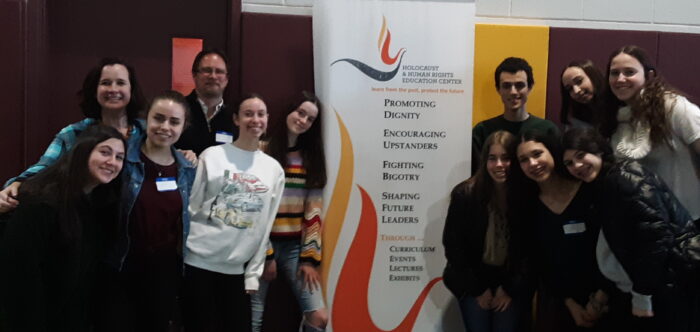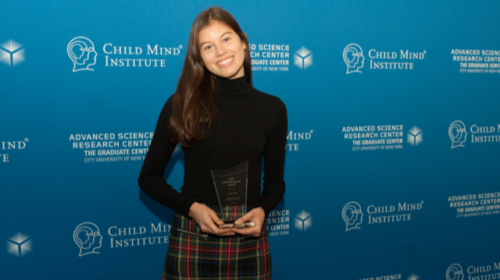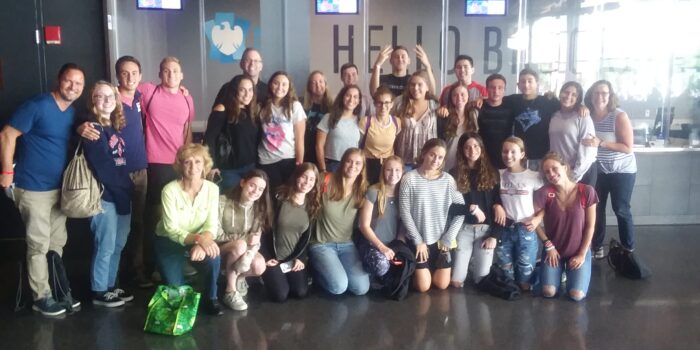
While STEM pursuits are enthusiastically encouraged these days, there are still students who love – and wish to find rigorous academic challenges – in the humanities. To better serve those students, a team of educators at Byram Hills High School has developed a three-year humanities track called Global Scholars. It’s research-based, and each year is “completely different,” according to program co-founder Duane Smith, chair of the English department for Byram Hills high school and middle school–grades 6 through 12. Smith designed and implements the Global Scholars program with Jennifer Laden, social studies chair, and Melissa Stahl, world languages chair.
This school year, 150 students will be involved with the Global Scholars program which is generously supported by the Byram Hills Education Foundation. “It really took off so quickly, and it said to us that this is something that is meeting a need,” Laden said. The three-year program starts with a seminar year that provides an overview of global issues. This first year is the most teacher-led while still emphasizing student-led learning, and most often taken by sophomores.
There are multiple entry points, though, so students can still join if they do a year or two of the program, although all first-year students in the program start at the beginning, with the seminar year. “We think year one is a great course for anybody,” Laden said, explaining that juniors and seniors are welcome to take the course.
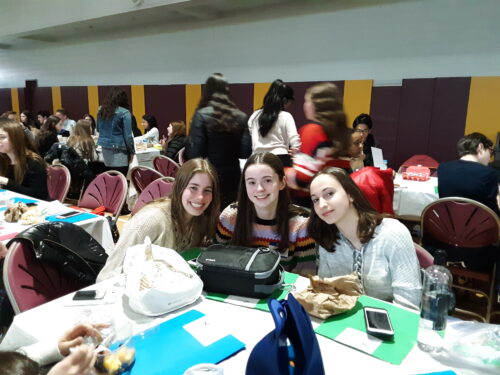
Ellie Margolin led a workshop on how
climate change affects human rights at
Iona College
A Focus on Global Competency Skills
From the United Nations Sustainable Development Goals, Smith and his colleagues developed three units for the first year of the program, in poverty, the environment and human rights. Students in the Global Scholars program find an area to explore more deeply within one of these three categories. “Within these units, we work on global competency skills,” Laden said, such as analyzing multiple perspectives, studying global issues and communicating ideas well.
“We want to expose the students to the problems facing this 21st century world and give them the preparation to do research, take action and communicate their ideas,” Smith said.
“The students are charged with choosing a topic that they are interested in,” Smith said, such as air pollution or sex trafficking in the U.S. The second year is the “action research” year. Much of this year is self-guided work by the students, and they learn time management while doing much work on their own in order to meet due dates. Students do independent research and “start to develop and implement an action plan,” Laden said.
Isabelle Levy’s area of interest is the lack of school supplies in Costa Rica, an area she said is considered to otherwise have a strong educational system. “I like that I can explore topics I wouldn’t get to explore in my other classes.” Levy, a senior at BHHS, said. Levy also enjoys the opportunity to do independent research. She has had a bake sale to raise funds and is currently selling bracelets and expects to assist La Escuela Balsaville in Costa Rica with a donation of hundreds of dollars so that school supplies can be purchased.
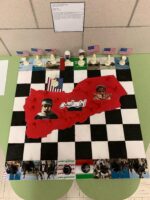
issues in Yemen
The Birth of the Program
Smith said the naissance of the Global Scholars program came from a conference at Harvard on global competency that he and some colleagues attended in the spring of 2016.
“Our mission was purposeful in that it was basically a charge from the former superintendent – he said the humanities were basically on the dark side of the moon and he wanted us to focus on the humanities. He wanted us to think big,” Smith said, adding that the current superintendent, Jen Lamia, has also been supportive of the endeavor.
Besides utilizing UN ideas, the teachers have drawn on sources such as the Asia Society, which offers a framework to guide those seeking to “understand the world through disciplinary and interdisciplinary study.” The Global Scholars program uses this framework to “guide the learning.” It has four parts: investigating the world, recognizing perspectives, taking action and communicating ideas. The third year of the program, that’s part of what students do: communicate their ideas to other students in the program, in part by leading workshops.
Creating Global Leaders
“The big goal is to develop leadership qualities, capacities and skills,” Laden said. Third-year students work as mentors for first- and second-year students to “put their leadership skills in action. Additionally, they will continue the action plan and see it through to fruition.”
“I really like it because it’s really different from the other classes,” Ellie Margolin, a senior at BHHS in her third year of the program, said. Margolin is focusing on water conservation issues in the U.S., originally inspired by an interest in the water issues in Flint, Michigan. But besides her personal area of study, Margolin said she has enjoyed the focus on discussion in the Global Scholars program, and also a trip she took with fellow students during her sophomore year to the Holocaust and Human Rights Education Center at Iona College in New Rochelle, where they attended a variety of seminars on human rights issues.
The following year, as a junior, Margolin returned and with two other students, led a seminar on climate change. Margolin also said she enjoys the unconventional assessments employed in the Global Scholars program. “There’s always an audience that’s not just the teacher,” Laden said. Students have shown their work in a public art exhibition and entered podcasts in a contest sponsored by NPR. This way, it’s clear that work is being created for a broader impact – not just done for a teacher.
“Our sophomore class coming in is roughly 200 students and we have roughly 60 students who have signed up for the program,” Smith said. “That’s a huge testament to the need for a global competency program – and it’s a testament to the kids in the school who really want to make a difference. We’re thrilled that we’re tapping into something that’s an important part of the development of our students.”
“We’re continuing to work on it and reflect on what we do,” Smith said, with input from students as well as colleague-to-colleague. “We have to rely on a feedback circle.” “It’s a great collaboration between professionals and we’re collaborating with the kids in developing the program,” Laden said. “They’re really creating the program as much as we are.” “I love the program,” Margolin said. “It’s absolutely amazing.”
